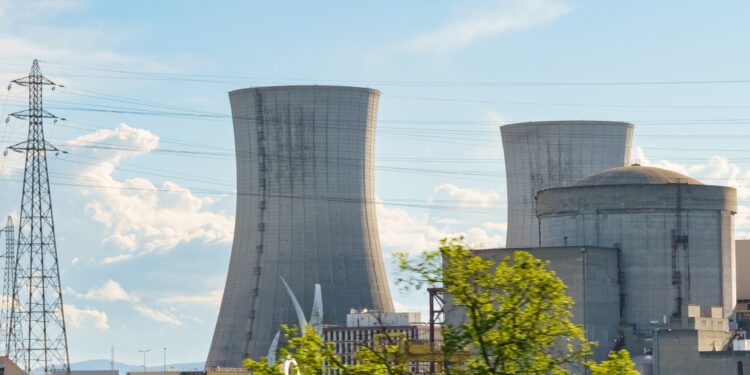In an ambitious move aimed at diversifying energy sources and enhancing security in this field, the Namibia President, Nitomybo Nandi-Ndiota, announced the government’s intention to start discussions this year on the establishment of the first nuclear power plant in the country.
These statements came during her speech to Parliament in the capital, Winduk, where she confirmed that the talks will start this year, despite the lack of a careful date for the start of the station.
Namibia is one of the largest uranium producers in the world, ranked third in the world in this field.
Accordingly, the government seeks to exploit these natural resources to increase local energy supplies and reduce dependence on traditional energy sources, which enhances independence in the field to ensure the sustainability of economic growth.
The World Nuclear Energy Association estimates that uranium mines in Namibia are able to provide about 10% of uranium supplies in the world, which enhances its position in this sector.
Namibia is still in urgent need to diversify its energy sources, as current energy production depends on imports from South Africa.
Ambitious plans
This initiative coincides with the efforts of the Namibi government to develop oil and gas resources, especially after the recent discoveries in these sectors.
President Nandi-Nadaitah pointed out that the government is working to build an oil refinery within its plans to develop these resources, while transferring supervision of this industry to the presidency to accelerate production and increase the benefit of potential revenues.
The government emphasizes that the oil and gas sector has the ability to transform the Namibi economy in the next five years, while ensuring that local energy supplies are secured, support for the electricity sector and the creation of job opportunities.
In the context of strengthening the economic environment, the country’s president announced a set of financial reforms, including reducing the tax of non -operating companies in the mining sector to 30% this year, with a reduction to 28% by 2026, with the aim of attracting investments and enhancing job creation.
This comes at a time when the Namibi economy faces great challenges, as the unemployment rate in the country is estimated at 37%, while the rate of economic growth for 2024 was only about 3.8%, compared to 4.2% in the previous year.
Moreover, the president shed light on other potentials in the metal sector, as she confirmed that Namibia has large resources in lithium, cobalt, manganese and rare ground floor.
These resources are among the opportunities that can support the Namibi economy in the future.
Looking for the future
Namibia seeks to exploit its natural resources more efficiently to diversify its economy and enhance its energy and social security.
Through these initiatives, the government hopes to achieve a sustainable economic transformation that enhances the country’s ability to face economic and social challenges in the future, and ensures improvement of education levels and reduce unemployment rates.
Thus, the country can go towards a more sustainable future, benefiting from its various natural resources and enhances its competitiveness at the global level.



